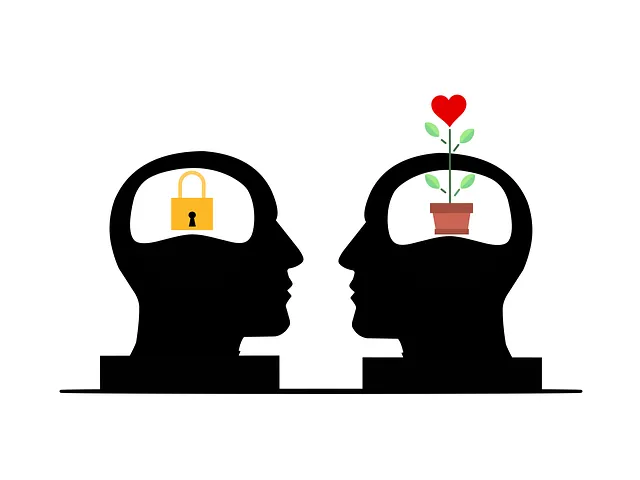Kaiser Permanente tackles mental health stigma through comprehensive programs that educate communities, encourage early intervention, and promote emotional intelligence. Their initiatives, including workshops and resources, normalize mental health issues, break down isolation, and foster supportive ecosystems. By engaging schools, workplaces, and community centers, Kaiser Permanente enhances understanding and provides superior mental health services, mirroring their commitment to excellence in this realm. Future efforts focusing on conflict resolution and positive thinking aim to create communities prioritizing mental health alongside physical well-being.
Mental illness stigma remains a significant barrier to accessing quality mental health care. This article explores comprehensive efforts to reduce this pervasive social issue, using Kaiser Permanente’s innovative strategies as a case study. We delve into their successful approach, focusing on community engagement and awareness campaigns. Additionally, we present inspiring success stories and discuss future directions, emphasizing the critical role of breaking down barriers to mental health support, particularly through initiatives like those implemented by Kaiser Permanente.
- Understanding the Impact of Stigma on Mental Health Care: A Look at Kaiser Permanente's Approach
- Strategies for Reducing Stigma: Engaging Communities and Promoting Awareness
- Success Stories and Future Directions: Breaking Down Barriers to Mental Health Support
Understanding the Impact of Stigma on Mental Health Care: A Look at Kaiser Permanente's Approach

The impact of stigma on mental health care is profound, often deterring individuals from seeking necessary support and treatment. Kaiser Permanente recognizes this challenge and has taken significant steps to reduce the stigma surrounding mental illness within its healthcare system. By implementing comprehensive programs and initiatives, they aim to foster a more inclusive environment where individuals feel empowered to prioritize their mental well-being.
Kaiser Permanente’s approach focuses on educating both patients and healthcare providers about the nature of mental health conditions. This includes promoting understanding through various channels, such as workshops, online resources, and community events. They emphasize the importance of self-awareness exercises and emotional intelligence development to encourage early intervention and better management of mental health issues. Through these efforts, Kaiser Permanente strives to ensure superior mental health care by breaking down barriers and creating a supportive ecosystem for all patients.
Strategies for Reducing Stigma: Engaging Communities and Promoting Awareness

Reducing the stigma surrounding mental illness is a collective effort that requires engaging communities and promoting awareness on a widespread scale. Kaiser Permanente mental health initiatives have recognized the power of community involvement in tackling this issue. By designing mental health education programs that cater to diverse audiences, they foster understanding and empathy. These programs can include workshops on emotional intelligence and positive thinking, targeting schools, workplaces, and community centers.
Through such initiatives, individuals with mental health conditions are normalized, breaking down the barriers of isolation and shame. Engaging communities in conversations about mental health helps reduce fear and promotes early intervention. This collective approach, led by organizations like Kaiser Permanente, ensures that everyone has access to accurate information, fostering a superior understanding and support system for those facing mental health challenges.
Success Stories and Future Directions: Breaking Down Barriers to Mental Health Support

In the ongoing efforts to reduce mental illness stigma, numerous success stories have emerged, particularly through initiatives led by organizations like Kaiser Permanente mental health services. These programs focus on raising awareness, fostering empathy, and providing accessible resources, breaking down barriers that historically prevented individuals from seeking support. For instance, their Crisis Intervention Guidance has proven effective in empowering people to navigate mental health crises with newfound confidence and resilience.
Looking ahead, the future of stigma reduction lies in integrating Conflict Resolution Techniques into community outreach programs. By teaching these skills, communities can create safer, more supportive environments where open conversations about mental health are encouraged. Moreover, promoting Positive Thinking as a preventive measure can equip individuals with tools to maintain well-being and reduce the onset of severe mental illness. These future directions hold promise for creating a more inclusive society that prioritizes mental health awareness and care on par with physical health.
Mental illness stigma reduction is a multifaceted endeavor, as evidenced by Kaiser Permanente’s successful approach and inspiring success stories. By engaging communities and promoting awareness, we can significantly enhance access to mental health support. Building on these efforts, future initiatives should continue to break down barriers, fostering an environment where everyone receives the superior mental health care they deserve.






